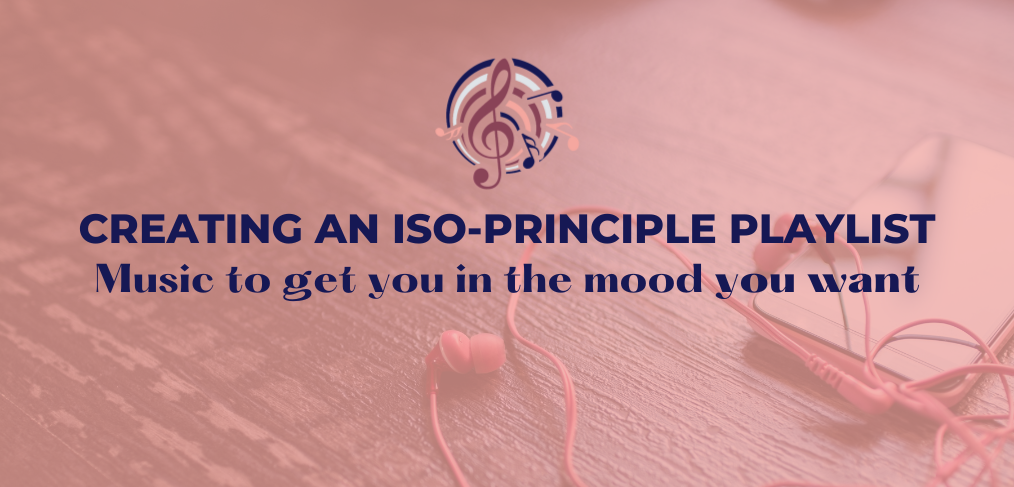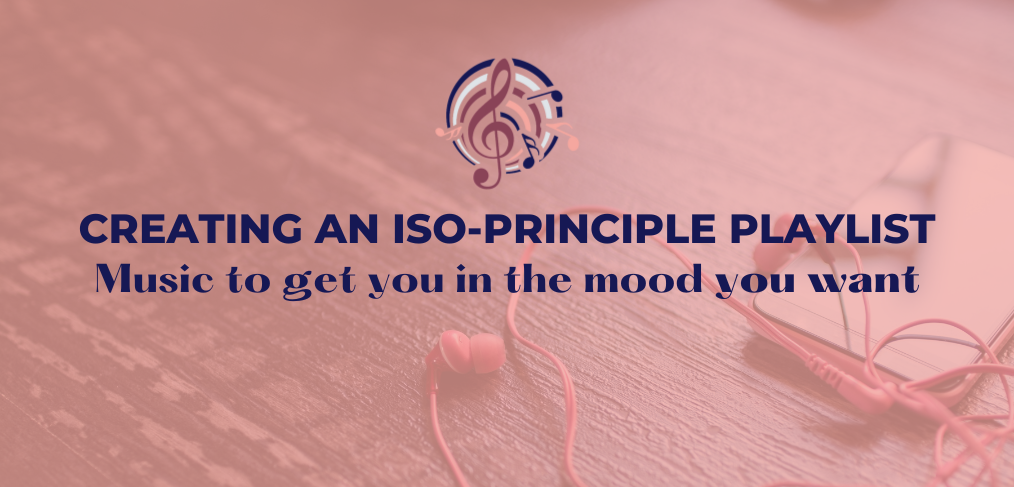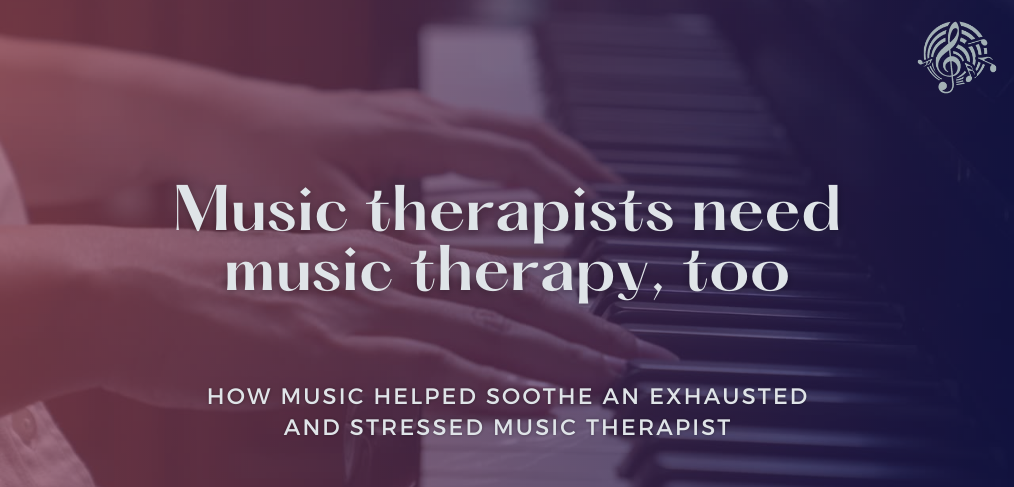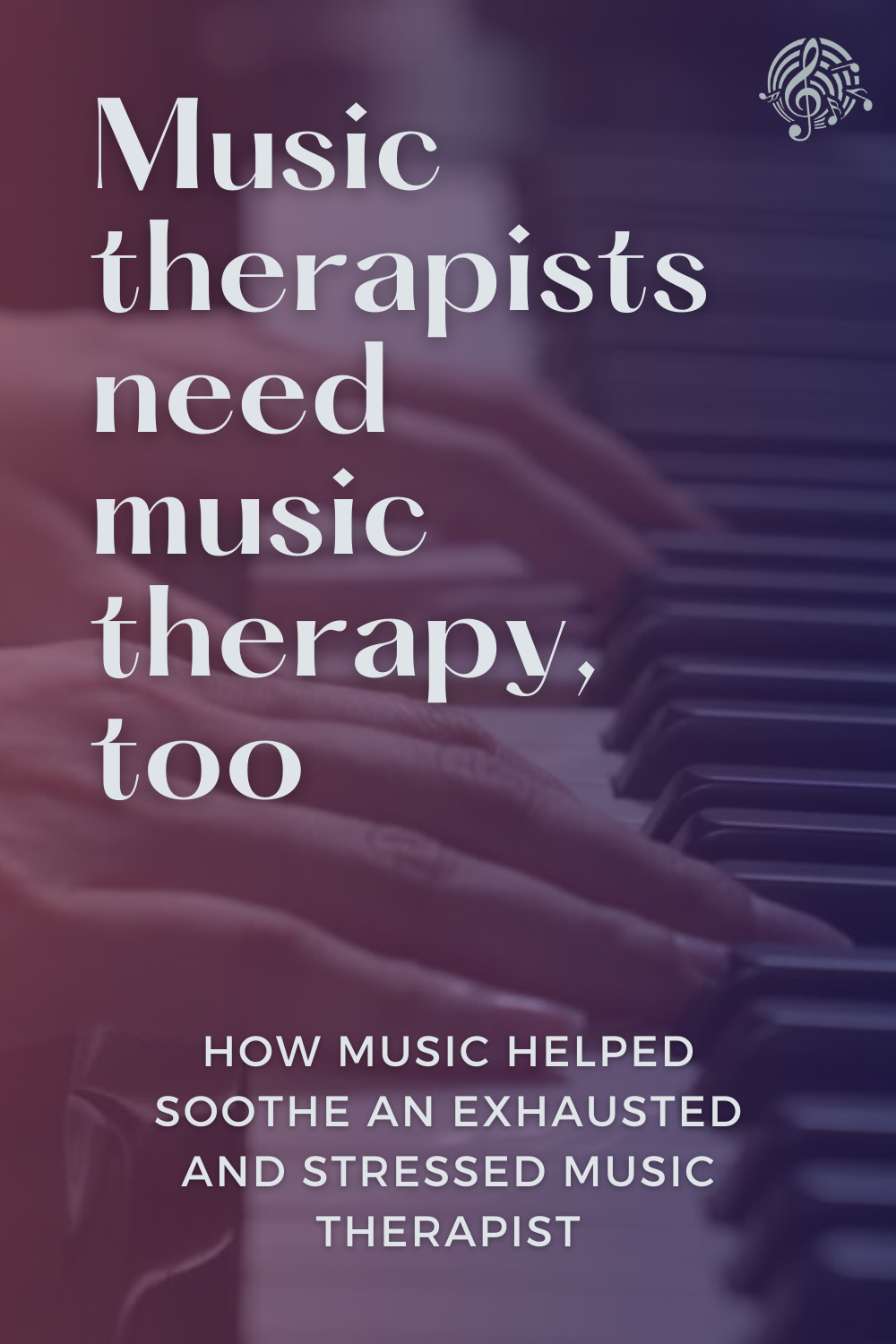Many of us often listen to music in our daily lives – whether jamming out with friends and family on a road trip, de-stressing after work or school, or setting the tone to complete a task – music is there to meet us where we are at.
What if there was a way to use it to change your mood?
This is where an iso-principle playlist comes in.
The iso-principle has long been used by music therapists to create and make music to meet clients where they are at emotionally and gradually shift their mood upwards. You too can make use of this technique using your phone, tablet, or laptop to create an iso-principle playlist in a few easy steps!
How to create your own playlist:
1. Identify your mood now, and then the mood you would like to be in.
2. Choose one or two songs that go with your mood now and note the genre and the tempo (how fast/slow the song is).
3. Next, choose one to two songs that go with the mood you would like to be in. Again, note the genre and the tempo.
4. Pick songs you feel would fit in between the songs you in steps 2 & 3. Choose around 8-10 songs to take you on a gradual journey towards the mood you want to be in. While sad and angry songs are great and can validate how we feel in the moment, it is important to move beyond them after a few songs and head towards music that reflects the mood we want to be in! Choose music that is increasingly uplifting/hopeful/energetic until you get to the songs that mirror the mood you want to be in.
Sit back and enjoy!
While creating one of these playlists to help yourself doesn’t make you a music therapist, it certainly is a great way to use music to better your everyday life! Having healthy ways to validate and process our emotions is an important part of our mental wellbeing, and it can be reassuring to know that there’s always someone – or a song – that understands how we feel.

Works Cited:
Hanser, Suzanne B. “Music Brings An Antidote To Toxicity.” 12 Jan. 2021, https://www.suzannehanser.com/music-strategies-for-wellbeing/2021/1/12/music-brings-an-antidote-to-toxicity-1.
Hoffer, Megan, et al. “How Music Affects Your Mind, Mood and Body.” Tallahassee Memorial HealthCare – Non-Profit Medical Care, Tallahassee Memorial HealthCare, 2 Dec. 2022, www.tmh.org/healthy-living/blogs/healthy-living/how-music-affects-your-mind-mood-and-body#:~:text=The%20Iso%2Dprinciple%20is%20a,a%20desired%20mood%20or%20emotion.



